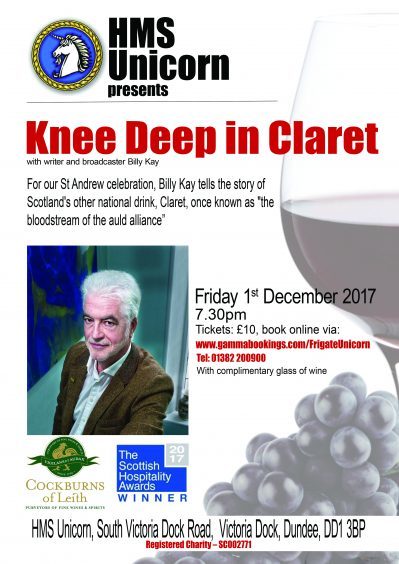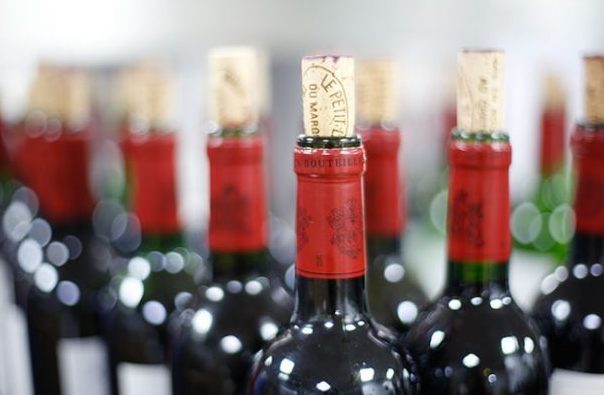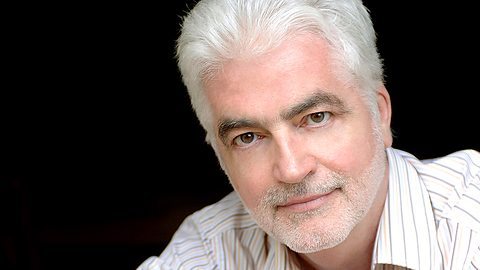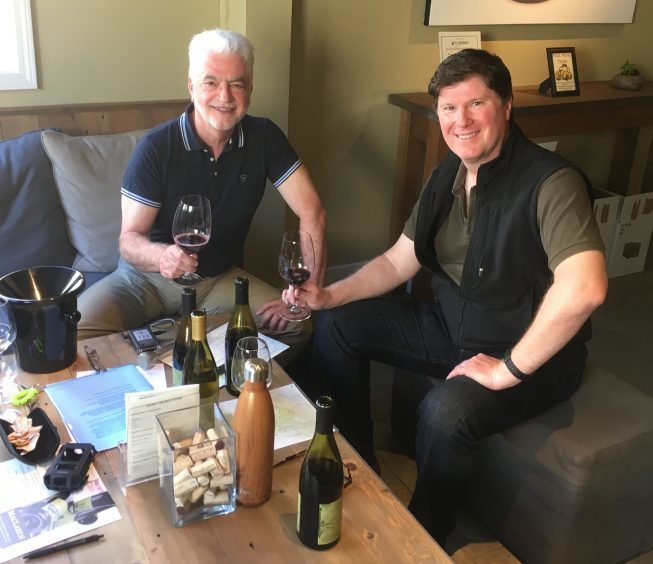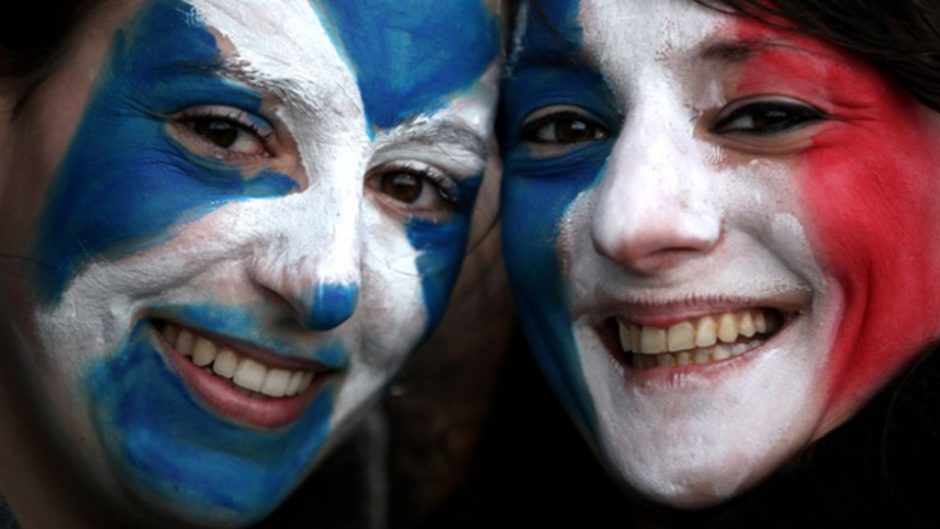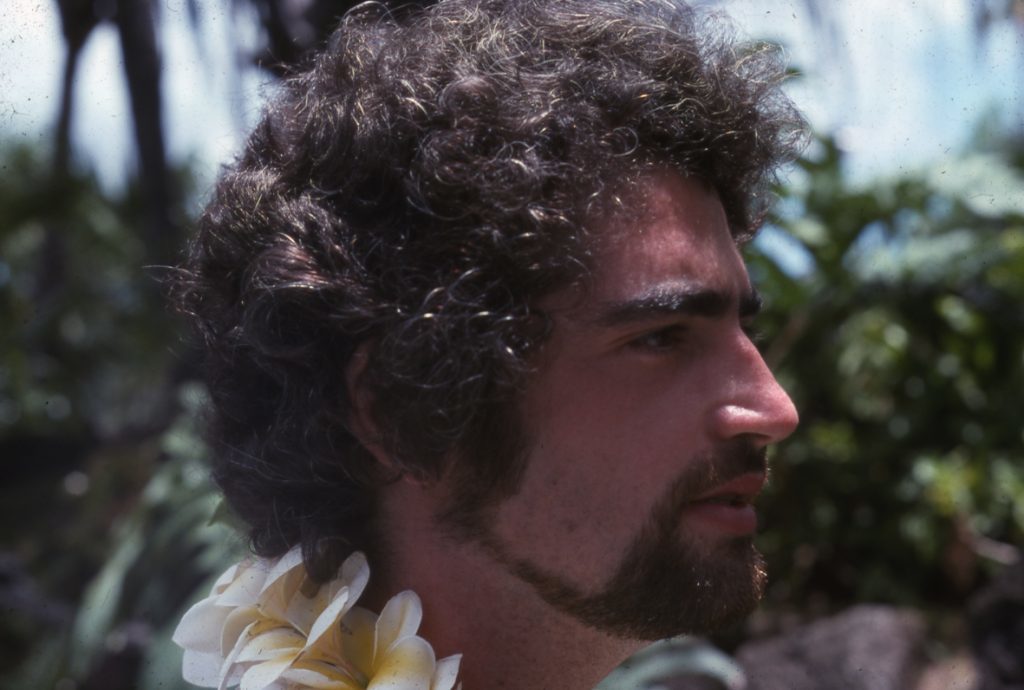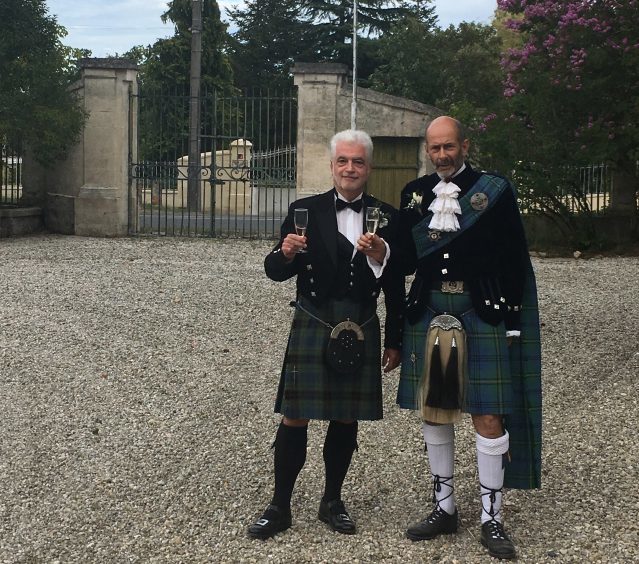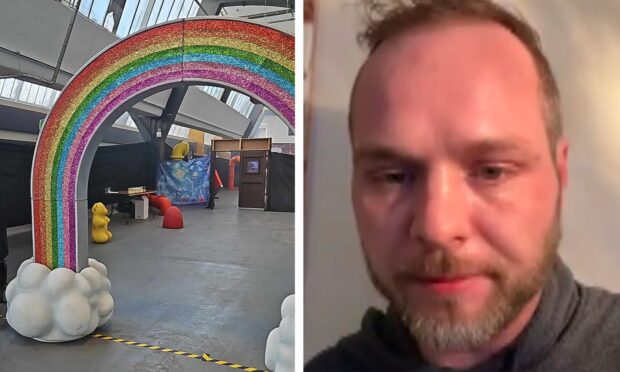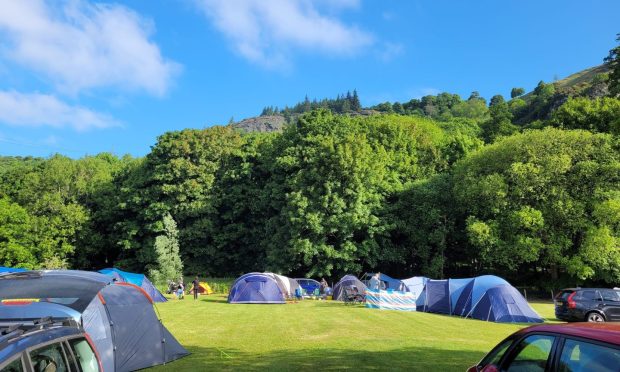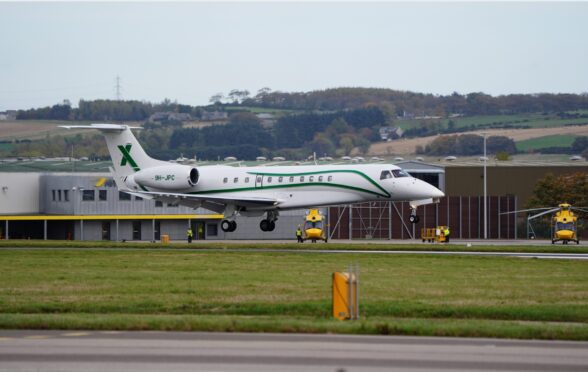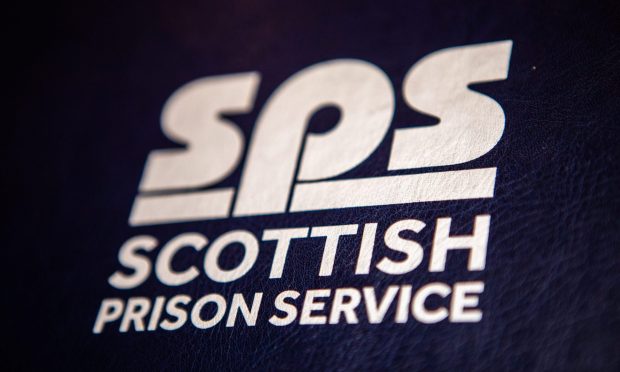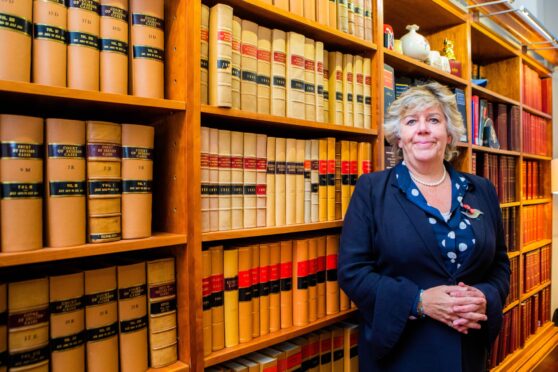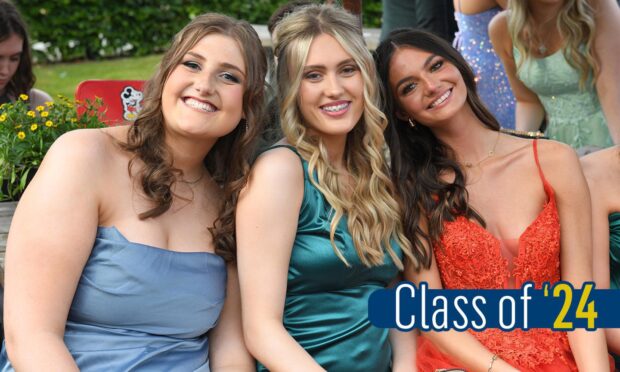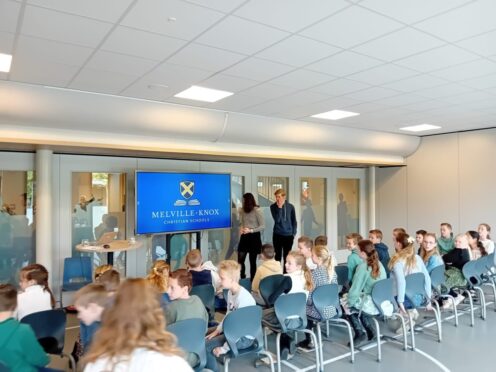Michael Alexander speaks to Newport-based broadcaster Billy Kay as he celebrates the Scots drouth for fine wine across the centuries in a new BBC Radio Scotland series.
Its role in the fermentation of the Auld Alliance between Scotland and France is legendary.
As well as being a military alliance based on a long standing friendship, the Franco-Scottish deal signed in 1295 also gave Scottish merchants privileged access to Bordeaux’s finest wines for centuries, much to the annoyance of English wine drinkers who received an inferior product.
But could claret have a legitimate claim to being Scotland’s original national drink ahead of whisky?
The possibility has been raised by Newport-based broadcaster and author Billy Kay ahead of a series of six new and archive BBC radio programmes he is presenting on Scottish convivial history.
In The Complete Caledonian Imbiber, the first part of which airs on BBC Radio Scotland on Tuesday, Billy celebrates the Scots drouth for wine across the centuries from the “fresche fragrant clairettis” described by the court poet Dunbar in the 16th century to the Scots making luscious Cabernet Sauvignons in California’s Napa Valley today.
In the first programme Billy follows in the footsteps of Robert Louis Stevenson who visited “the long green strath” of Napa Valley on his honeymoon in 1880 and discovered wine there which he described as “bottled poetry”.
He tastes wines in the cellars of Schramsberg and visits the vineyard there of one of the Scots pioneers in Napa – Colin McEachran from Greenock.
Another of the California wine makers he meets is Steve Law, originally from Dunfermline, who helps him explore the Scots’ centuries-old relationship with the fermented grape.
“Claret definitely has a strong claim to be Scotland’s national drink other than whisky,” said Billy in an interview with The Courier.
“The red wine of Bordeaux claret had such a strong claim to be Scotland’s national drink over the centuries that it was called “the bloodstream of the Auld Alliance”.
“Even after the Union with England when the British government tried to ban French wine, people smuggled it in great quantities so they could continue drinking it.
“It became a symbol of Jacobitism and Scottish nationalism in the 18th century. The Jacobite toasts were all in claret to the ‘king ower the water’ and the repeal of the union and things like that.
“It became a symbol of Scottish-ness – that Franco-Scottish tradition.”
Billy, who grew up in Ayrshire, was in his mid-teens when he got a taste for fine wine.
As a 15-year-old he hitchhiked to France to visit a pen pal, as a 16 year old he was drinking champagne in the ice cream shops of St Petersburg during a school trip to Russia and as a 17 year old his tastes were widened further on a hitch hiking trip to Italy.
It was while studying French and Scottish literature at Edinburgh University, however, that his interest fully developed.
“I spent a year travelling round the world and one of the jobs I got was as a wine waiter at the government-run Celtic Lodge in the Gaelic Highland part of Nova Scotia – that got me into more of the finer wines,” he said.
“Then I bought Hugh Johnson’s book Wine when I came back from that in the late 1970s.
“I began to really get into it and become aware of the old wine merchants of Edinburgh like Cockburns of Leith and Cockburn and Campbell.”
Billy went on to co-author with Cailean Maclean the book Knee Deep in Claret – A Celebration of Wine, France and Scotland.
He has presented one TV programme and several radio featurss on the same Franco-Scottish theme.
In 1994 the Wine Guild of the UK presented his radio programme “Fresche Fragrant Clairettis” with the Houghton Award for the best British radio or TV programme to promote wine.
In 1996 ‘Knee Deep in Claret’ – the first programme in his original Imbiber series – won the Wines of France Award.
Since the early 1980s he has maintained regular contact with his godson William Johnston and the wines chosen by William’s father Jean Marie Johnston, continuing three centuries of Johnston family tradition dealing wine.
Billy is fascinated by that period in Scottish history around 1500 when King James IV unsuccessfully tried to grow vines on the lands near Stirling Castle. It’s a classic story he will tell when he gives a St Andrews Day weekend talk on board the HMS Unicorn in Dundee on December 1.
However, despite recent mixed attempts by chef Christopher Trotter to grow vines in Fife, he does not foresee Scottish wines challenging the French varieties soon – despite the predicted impact of climate change.
“English wine is moving north,” Billy added. “But I don’t think (Fife vine growing) will be in my lifetime!”
- The first of the six part The Complete Caledonian Imbiber by Billy Kay airs on BBC Radio Scotland at 1.30pm on Tuesday November 21, repeated on Sunday November 26 at 7.32am. It will also be available on iPlayer.www.bbc.co.uk/programmes/b09g4ffb
- Billy Kay’s Knee Deep in Claret talk takes place at HMS Unicorn, Dundee, at 7.30pm on December 1. For tickets go to gammabookings.com/FrigateUnicorn tel 01382 200900.
